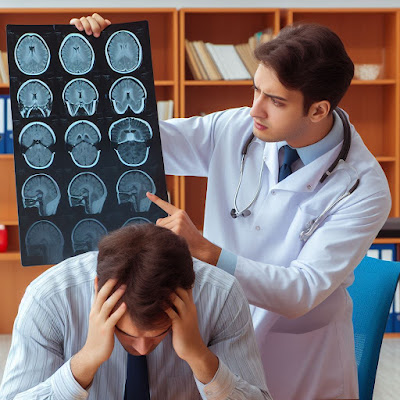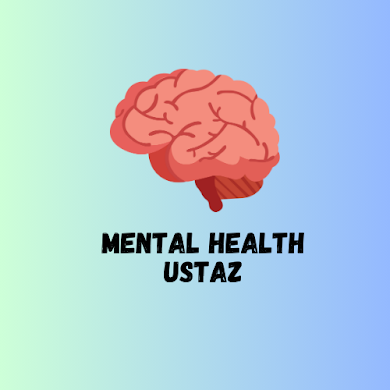# Understanding Obsessive Compulsive Disorder: A Comprehensive Guide
In the realm of mental health, **Obsessive Compulsive Disorder (OCD)** is a condition that has captured the attention of both researchers and the general public alike. With its intricate manifestations, OCD can be a complex subject to tackle, but in this comprehensive guide, we'll explore this disorder from top to bottom, shedding light on its various aspects, symptoms, and treatment options. Our goal is to provide you with the most valuable and in-depth information possible, enabling you to gain a better understanding of **Obsessive Compulsive Disorder (OCD)**.
## What is Obsessive Compulsive Disorder?
**Obsessive Compulsive Disorder**, commonly referred to as **OCD**, is a chronic mental health condition characterized by a cycle of obsessions and compulsions. **Obsessions** are intrusive, unwanted, and distressing thoughts, images, or urges that continually plague individuals with **OCD**. **Compulsions**, on the other hand, are repetitive behaviors or mental acts that a person feels driven to perform in response to their **obsessions**. This cycle can lead to significant distress and interference in one's daily life.
## The Prevalence of OCD
**OCD** is more common than one might think. It affects people of all ages, from children to adults, and across different cultures. Studies have estimated that approximately 2.3% of the global population will experience **Obsessive Compulsive Disorder** at some point in their lives, making it one of the most prevalent mental health disorders.
## Common Obsessions and Compulsions
### **Obsessions**
#### 1. Contamination Obsession
- People with this **obsession** fear dirt, germs, or contaminants related to **Obsessive Compulsive Disorder**.
#### 2. Harm Obsession
- Individuals may experience intrusive thoughts of causing harm to themselves or others, even if they have no intention of doing so, a common aspect of **OCD**.
#### 3. Symmetry Obsession
- Some individuals are obsessed with having things perfectly symmetrical or in an exact order, which is a hallmark of **Obsessive Compulsive Disorder**.
### **Compulsions**
#### 1. Handwashing Compulsion
- Often linked to **contamination obsessions** in **OCD**, compulsive handwashing is a common behavior in those with **Obsessive Compulsive Disorder**.
#### 2. Checking Compulsion
- People with **OCD** might repetitively check locks, stoves, or appliances to ensure they are off or locked due to their **obsessive thoughts**.
#### 3. Counting Compulsion
- Counting objects or actions repeatedly can provide relief from **obsessive thoughts** related to **Obsessive Compulsive Disorder**.
## The Impact on Daily Life
**Obsessive Compulsive Disorder** can significantly impact various aspects of a person's life, including their relationships, work, and overall well-being. People with **OCD** often find it challenging to maintain a normal routine and may spend a considerable amount of time performing compulsions or dealing with distressing **obsessions** associated with **Obsessive Compulsive Disorder**.
## Diagnosis and Treatment
### Diagnosis
Diagnosing **OCD** typically involves a thorough evaluation by a mental health professional. The criteria for an **OCD** diagnosis are outlined in the Diagnostic and Statistical Manual of Mental Disorders (DSM-5). It is essential to differentiate between **OCD** and other mental health conditions to ensure appropriate treatment.
### Treatment Options
#### 1. Cognitive-behavioral therapy (CBT)
- **CBT**, specifically Exposure and Response Prevention (ERP), is considered the gold standard in treating **Obsessive Compulsive Disorder (OCD)**. It involves exposing individuals to their **obsessions** and preventing the associated compulsions.
#### 2. Medication
- Selective serotonin reuptake inhibitors (SSRIs) are commonly prescribed to individuals with **OCD** to help manage their symptoms related to **Obsessive Compulsive Disorder**.
#### 3. Lifestyle Modifications
- Stress management, regular exercise, and a healthy diet can complement other treatment methods and help individuals with **OCD** lead a more balanced life, an essential consideration for those dealing with **Obsessive Compulsive Disorder**.
## Living with OCD
For those diagnosed with **Obsessive Compulsive Disorder (OCD)**, living with the condition can be challenging, but it is entirely manageable. With the right treatment and support, individuals with **OCD** can lead fulfilling lives and achieve their goals, providing hope for those affected by **Obsessive Compulsive Disorder**.
## Conclusion
In this comprehensive guide, we've delved deep into the world of **Obsessive Compulsive Disorder**. We've explored its definition, prevalence, common obsessions and compulsions, the impact on daily life, diagnosis, and treatment options. Armed with this knowledge, you're better equipped to understand **OCD** and support those who may be living with it, crucial for those seeking information about **Obsessive Compulsive Disorder**.
For more information visit (https://www.nimh.nih.gov/health/topics/obsessive-compulsive-disorder-ocd#:~:text=Obsessive-compulsive%20disorder%20(OCD),or%20interfere%20with%20daily%20life.)
**FAQs (Frequently Asked Questions)**





0 Comments